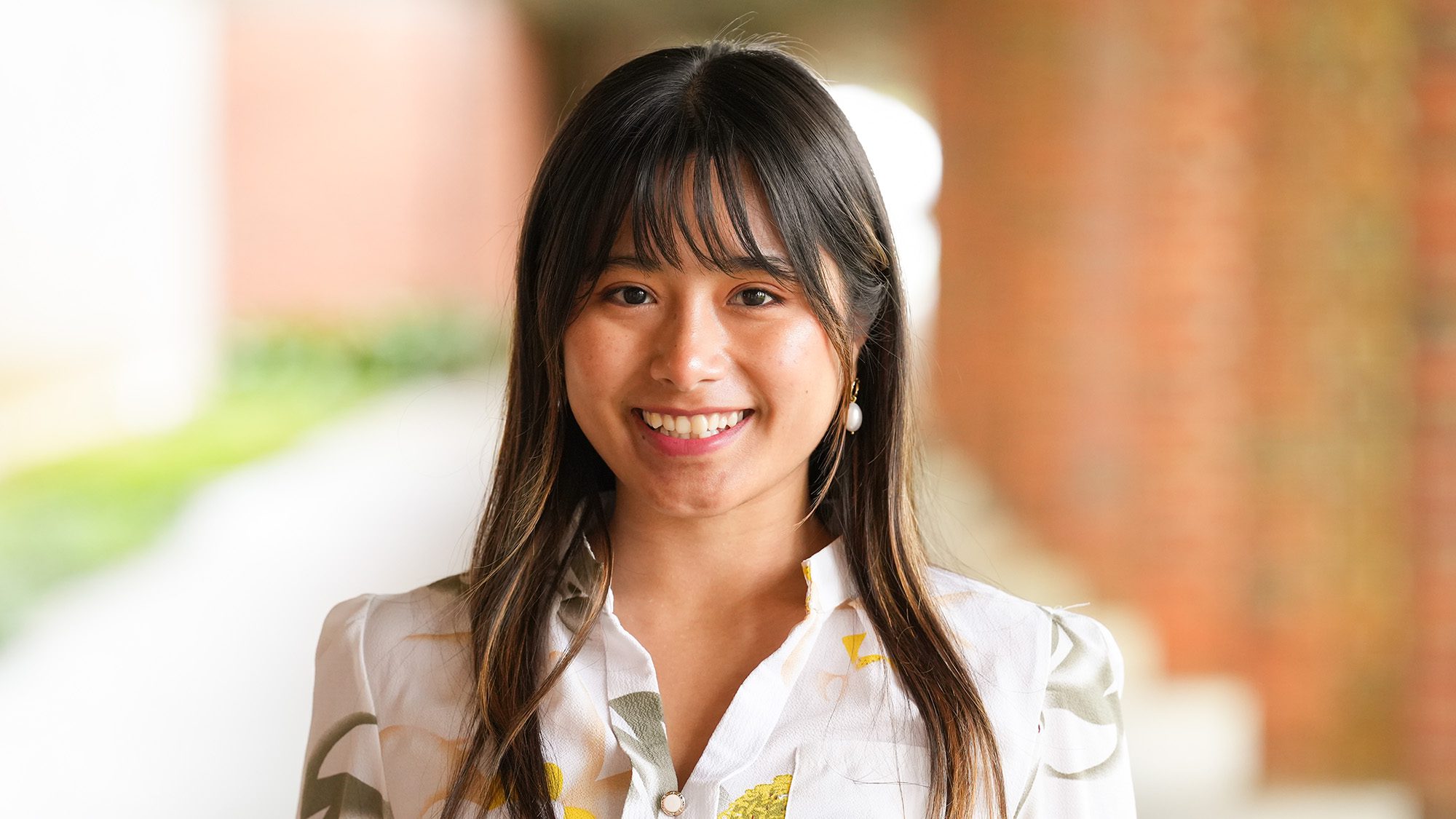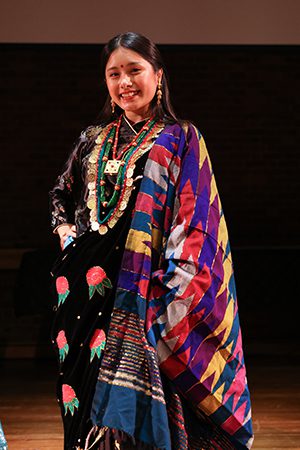Puspanjali Gurung ’24 finds family all over the world

AAPI Heritage Month at Furman
Read more stories >>
Puspanjali Gurung ’24 remembers her childhood home in South Asia as “a good place to live,” she said. “I remember having fun with my friends and swimming in the nearby rivers, doing the things that a kid would do.”
But at age 6, she and her family left her birthplace – a United Nations refugee camp in eastern Nepal – for the United States. For the Gurungs, it was the last leg of a journey that started in Bhutan nearly two decades before – “a time of extreme violence,” says Gurung.
Like many other members of the Lhotshampa, an ethnic group with roots in Nepal, Gurung’s family had lived in the South Asian kingdom for generations until the ethnic cleansing policies of the Bhutanese government forced out an estimated 100,000 people in the early 1990s. After being denied settlement in India, Gurung’s parents continued west to Nepal and the camp where Gurung and her younger brother were both born.

Puspanjali Gurung ’24 wears traditional Nepali clothing during the FUISA Fashion Show in November 2021.
After settling in the U.S. in 2009, “I’ve definitely kept in touch with where I came from,” said Gurung, who bonded with the Nepali community in Charlotte, North Carolina. “My parents encouraged that with things like speaking Nepali at home, to try to prevent complete assimilation into the U.S. culture.”
Dance, K-drama and curry
Gurung, who speaks Hindi as well as Nepali and English, also began practicing traditional Nepali dances, many of which she features on her YouTube channel.
“There are a lot of dances in Nepal,” she said, “and one of my goals is to do each one of them.”
She’s crossed many off her list, including the dances of the Gurung people, the ethnic Nepali group her family identifies with.
“There’s a dance called Ghatu that I haven’t gotten to do, because it’s very specific to Gurung villages,” she said. “I would have to go to Nepal to learn it. But I’ll get around to that sometime later.”
She has joined cultural celebrations and festivals wearing the traditional clothing that distinguishes Gurungs from other ethnic groups in Nepal and South Asia. She also relishes watching Korean TV dramas and cooking Asian food, particularly rice and curry.
“There’s so many different types, but I love my mom’s chicken curry,” said Gurung. “I think sometimes when I go back home, it’s because of that curry.”
Global and campus families
On campus, Gurung has performed in the Furman University International Students Association (FUISA) International Dance Festival and International Fashion Show. Working as an admissions social media intern, resident assistant and member of Mosaic – a student group working to bring diverse populations to Furman – also helped her find a group of “valuable friends,” she said.
Working as a certified nursing assistant at The Woodlands at Furman has “helped me think about if health care in a clinical setting is the right thing for me,” said the public health major. “I know a lot of Asian American students are forced to think of a path right away. It’s definitely been hard for me to take a step back and reflect on what I really want to do instead of what my parents aspire for me.”
She’s leaning toward a career in health policy or community health, but as she prepares for her senior year, Gurung is spending much of this month, which is also Asian American and Pacific Islander (AAPI) Heritage Month, overseas with her family, visiting relatives in Australia and New Zealand. Her ties extend to many of the countries where the Lhotshampa have been resettled by the U.N.: In her sophomore year, during a study away trip, she had connected with relatives who emigrated to Denmark.
“It’s good to know you have family in each part of the world,” she said.